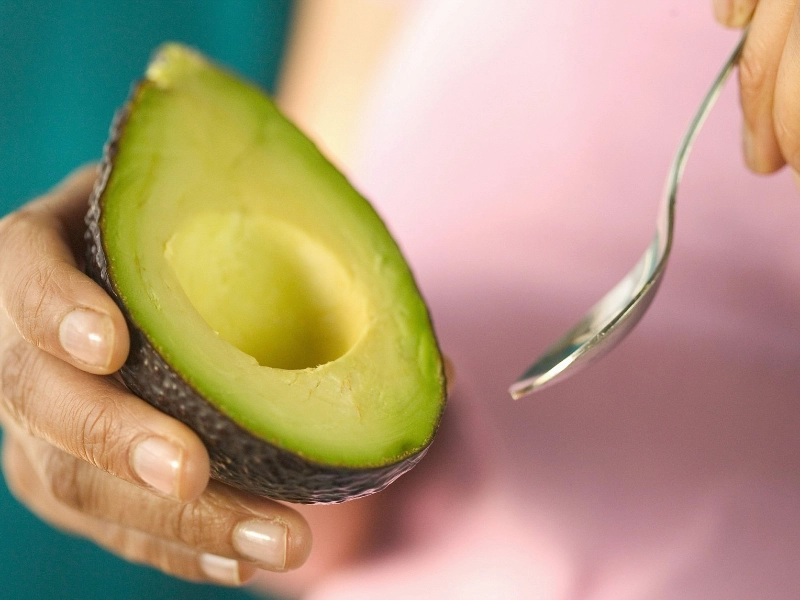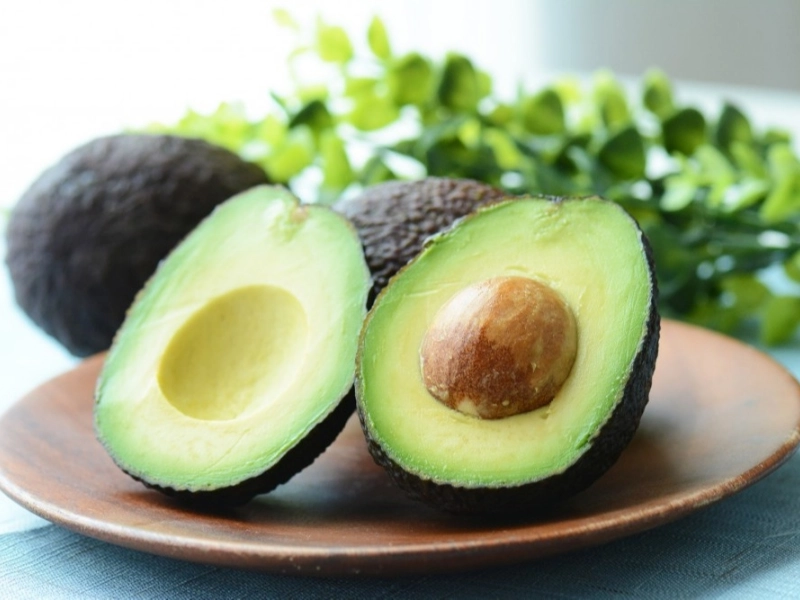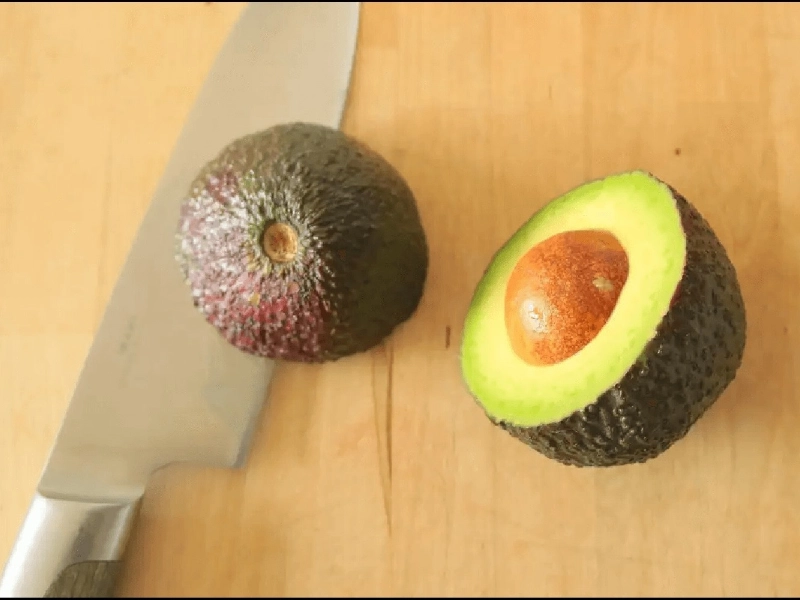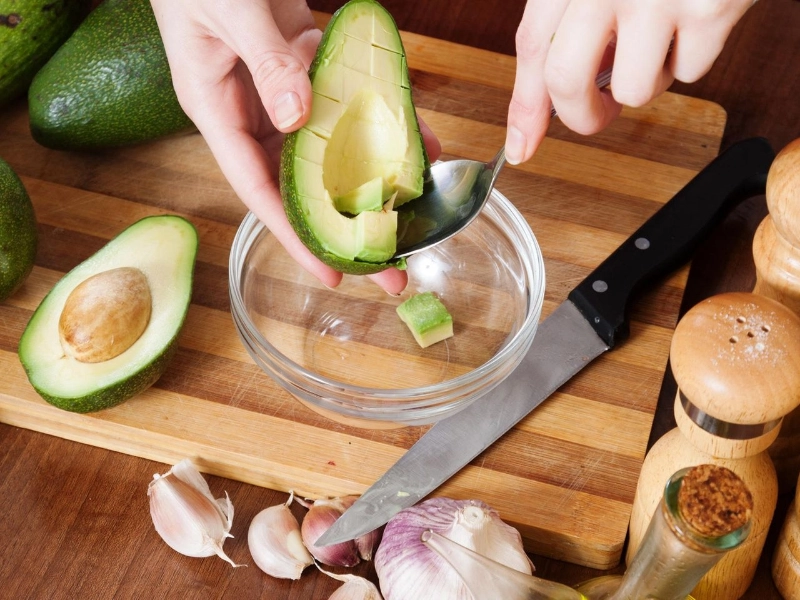Avocados are rich in vitamins, fiber and beneficial fats. They are also great for weight loss and are very beneficial for gut health. They are delicious any time of the day, but they are great with avocado sauce and toast before bed. On the other hand, eating avocados before bed can disrupt your sleep patterns. This is because the amino acid casein can induce the release of the brain-stimulating chemical norepinephrine.

 Avocados are rich in potassium, fiber, and beneficial fats. They are also an excellent source of monounsaturated fats, which are necessary to maintain a healthy metabolism and diet. Avocados can be used in many different dishes and are low in calories. You can use this superfood in a variety of dishes, such as avocado sauce and avocado toast. However, keep in mind that avocados are high in casein, and for those who are sensitive to casein, casein can cause headaches. Eat less avocados and stay away from smoked, cured, and fermented foods to lower the odds of experiencing casein-related symptoms. Avoid cooked meats, peperoncino, salami, and corned beef that have added nitrates and nitrites. Ricotta and farmer's cheese are acceptable, but aged cheeses such as brilliant, blue, Swiss, cheddar, and provolone should be avoided. Fresh berries and pears are better choices as they are low in casein. They also contain fiber and vitamin E, both of which are necessary for sleep.
Avocados are rich in potassium, fiber, and beneficial fats. They are also an excellent source of monounsaturated fats, which are necessary to maintain a healthy metabolism and diet. Avocados can be used in many different dishes and are low in calories. You can use this superfood in a variety of dishes, such as avocado sauce and avocado toast. However, keep in mind that avocados are high in casein, and for those who are sensitive to casein, casein can cause headaches. Eat less avocados and stay away from smoked, cured, and fermented foods to lower the odds of experiencing casein-related symptoms. Avoid cooked meats, peperoncino, salami, and corned beef that have added nitrates and nitrites. Ricotta and farmer's cheese are acceptable, but aged cheeses such as brilliant, blue, Swiss, cheddar, and provolone should be avoided. Fresh berries and pears are better choices as they are low in casein. They also contain fiber and vitamin E, both of which are necessary for sleep.
 Avocados are rich in lipids and nutrients, making them a nutritious and healthy food. They also contain potassium, which helps in controlling blood pressure. However, eating them before bed may be risky. This is due to the possibility of gastrointestinal upset, especially in people with sensitive stomachs. Also, because avocados are high in casein, eating avocados may increase the risk of insomnia. This amino acid can wake up and wake up the brain. It may also increase blood pressure. Not eating avocados at night is the easiest way to prevent this situation. Avocados are a delicious creamy fruit that can be spread on toast or used to make avocado sauce. In recipes, it often replaces butter or margarine. It can also be added to smoothies. Try different techniques for eating avocados and pay attention to each technique before your stomach feels vital. You should also monitor your sleep time and quality to see if there are any changes.
Avocados are rich in lipids and nutrients, making them a nutritious and healthy food. They also contain potassium, which helps in controlling blood pressure. However, eating them before bed may be risky. This is due to the possibility of gastrointestinal upset, especially in people with sensitive stomachs. Also, because avocados are high in casein, eating avocados may increase the risk of insomnia. This amino acid can wake up and wake up the brain. It may also increase blood pressure. Not eating avocados at night is the easiest way to prevent this situation. Avocados are a delicious creamy fruit that can be spread on toast or used to make avocado sauce. In recipes, it often replaces butter or margarine. It can also be added to smoothies. Try different techniques for eating avocados and pay attention to each technique before your stomach feels vital. You should also monitor your sleep time and quality to see if there are any changes.
 Stress at work, an awkward remark made at a party four years ago, and a shocking number of bee deaths are some of the reasons that keep you up all night. But your avocado shake or toast seems to be the culprit too. This is because it contains casein, which can cause the brain to release a chemical amino acid that blocks sleep. The high fat content of avocados can affect sleep latency and melatonin synthesis. It can also lead to gut troubles. So, it's best to stay away from avocados at night. Avocados are rich in potassium, a nutrient that helps keep muscles healthy and control blood pressure. Add avocados to your diet as a nutritional replacement for other high-sodium foods (such as cookies and potato chips). They're also great for breakfast or snacks. Other high-potassium foods include kiwi, bananas, and apricots.
Stress at work, an awkward remark made at a party four years ago, and a shocking number of bee deaths are some of the reasons that keep you up all night. But your avocado shake or toast seems to be the culprit too. This is because it contains casein, which can cause the brain to release a chemical amino acid that blocks sleep. The high fat content of avocados can affect sleep latency and melatonin synthesis. It can also lead to gut troubles. So, it's best to stay away from avocados at night. Avocados are rich in potassium, a nutrient that helps keep muscles healthy and control blood pressure. Add avocados to your diet as a nutritional replacement for other high-sodium foods (such as cookies and potato chips). They're also great for breakfast or snacks. Other high-potassium foods include kiwi, bananas, and apricots.